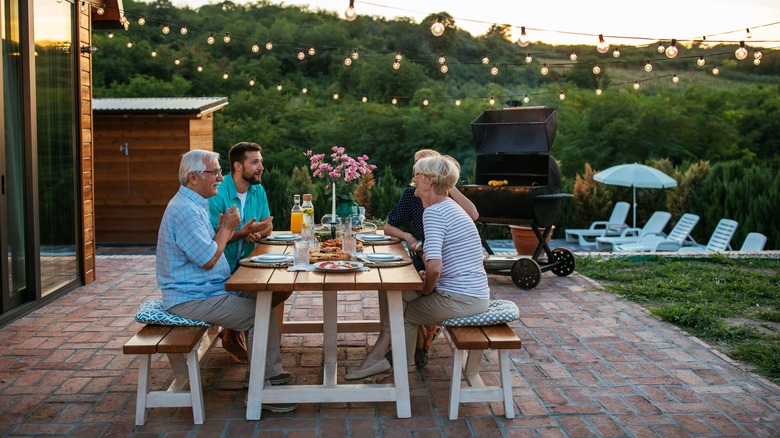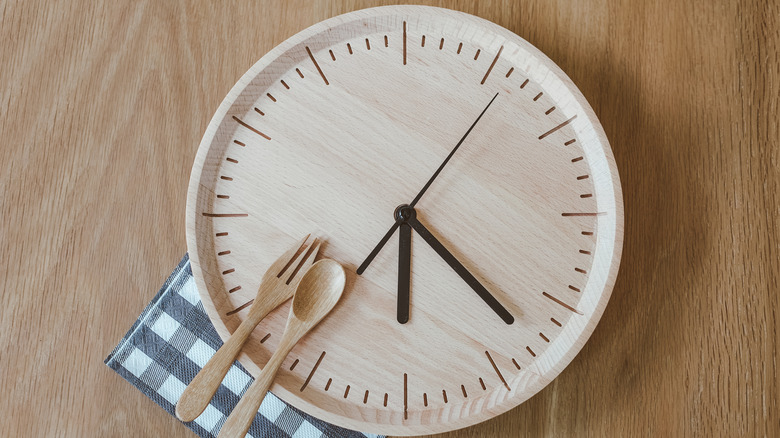Could The Timing Of Your Meals Have Anti-Aging Benefits?
You have no doubt heard that you are what you eat, but it's not just what you eat that can affect your overall health and life. Researchers have known for some time that cutting down on the number of calories you eat — a practice called calorie restriction — might lead to a longer life. Healthline reports that animal studies show that when calories are restricted, lifespans can increase by 30-50%. While experts are not exactly clear why eating fewer calories leads to a longer life, some think that eating less revitalizes the body's biological clock. Others believe that fewer calories mean that there are fewer free radicals in the body doing damage.
However, the timing of your meals might also reap benefits. For instance, eating late at night might result in weight gain and disrupt blood sugar levels, especially if you eat processed, high-carb foods (via Livestrong). Now, scientists have discovered that eating dinner earlier in the evening may have an anti-aging effect.
Mice lived 35% longer
For the study, which was published in the journal Science, scientists separated mice into six groups: one group ate as much as they wanted when they wanted, while the other five ate 30-40% fewer calories on different eating schedules. The control mice lived an average of 880 days. The mice that ate during the day, which is the inactive phase of their circadian cycle (they are nocturnal), lived 20% longer than the control mice. The research showed that the mice on restricted diets had less inflammation and their bodies were able to regulate glucose and insulin better.
In addition to those benefits, the mice that ate during the active part of their day (which was at night) and fasted for 12 next hours showed an even greater improvement in lifespan. They lived an average of 1,068 days, which is 35% longer than the mice in the control group. The researchers acknowledged that human studies may not yield the same results, but if they do, people might want to reconsider when they eat their last meal of the day.


